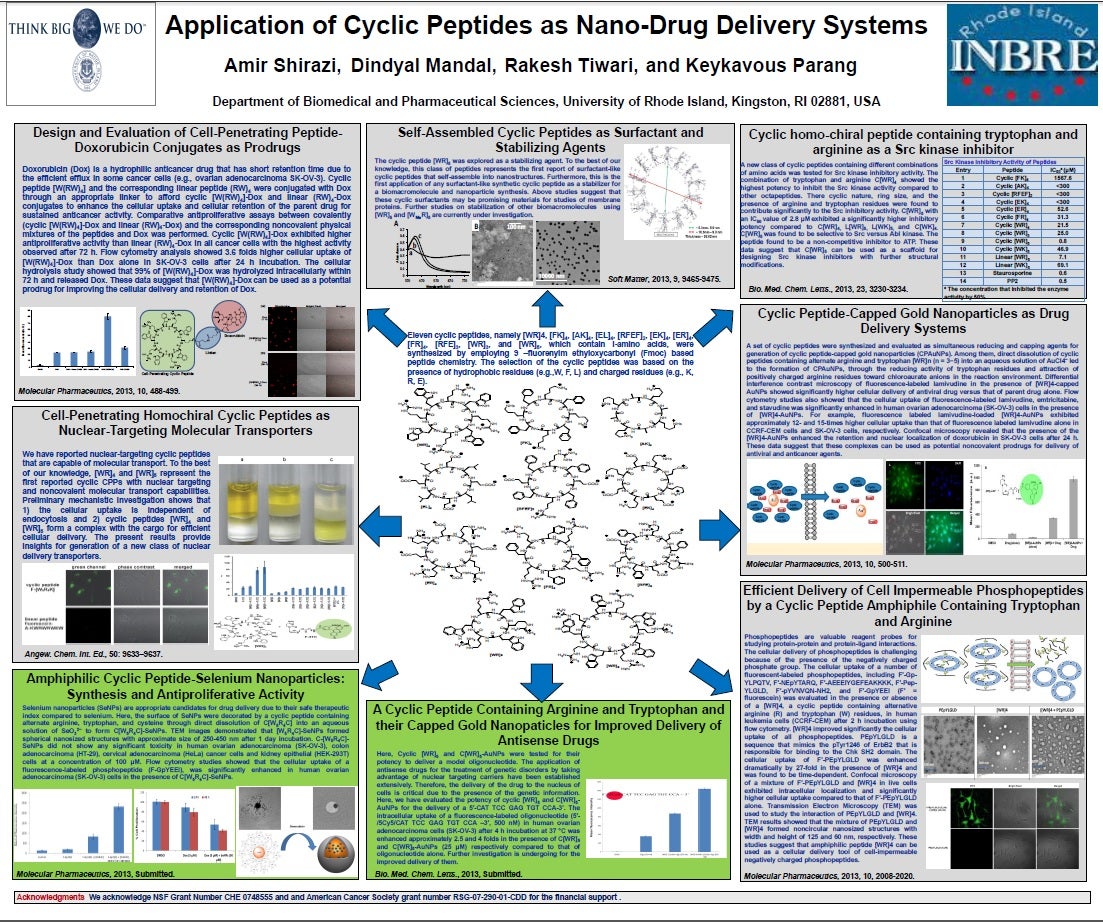- Presented at the 245th ACS National Meeting, April 2013
- Amir Shirazi, Dindyal Mandal, Rakesh Tiwari, and Keykavous Parang
Research
Doxorubicin (Dox) is a hydrophilic anticancer drug that has short retention time due to the efficient efflux in some cancer cells (e.g., ovarian adenocarcinoma SK-OV-3). Cyclic peptide [W(RW)4] and the corresponding linear peptide (RW)4 were conjugated with Dox through an appropriate linker to afford cyclic [W(RW)4]-Dox and linear (RW)4-Doxconjugates to enhance the cellular uptake and cellular retention of the parent drug for sustained anticancer activity. Comparative antiproliferative assays between covalently (cyclic [W(RW)4]-Dox and linear (RW)4-Dox) and the corresponding noncovalent physical mixtures of the peptides and Dox was performed. Cyclic [W(RW)4]-Dox exhibited higher antiproliferative activity than linear (RW)4-Dox in all cancer cells with the highest activity observed after 72 h. Flow cytometry analysis showed 3.6 folds higher cellular uptake of
[W(RW)4]-Dox than Dox alone in SK-OV-3 cells after 24 h incubation. The cellular hydrolysis study showed that 99% of [W(RW)4]-Dox was hydrolyzed intracellularly within 72 h and released Dox. These data suggest that [W(RW)4]-Dox can be used as a potential prodrug for improving the cellular delivery and retention of Dox.
Related People: Keykavous Parang
Department of Biomedical and Pharmaceutical Sciences, University of Rhode Island, Kingston, RI 02881, USA

